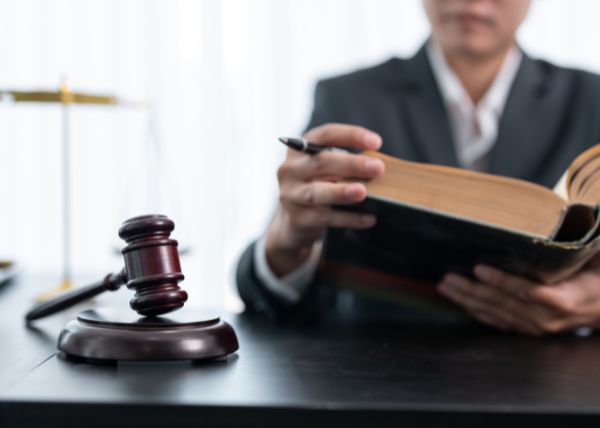New York Civil Rights & Criminal Defense Lawyers
Providing Legal Options When Police Cause Injuries
At Sivin, Miller & Roche LLP, we understand the devastating impact a police shooting can have on victims and their families. When law enforcement exceeds their authority and uses excessive or unjustified force, the consequences can be life-altering. Our experienced police shooting lawyers are dedicated to holding officers and departments accountable for misconduct, ensuring victims receive the justice and compensation they deserve. If you or a loved one has been affected by a police shooting, don’t face this fight alone. Contact Sivin, Miller & Roche LLP today for a free, confidential consultation, and let us help you pursue justice.

When Can Police Use Deadly Force?
Police officers are permitted to use deadly force in very limited and specific circumstances. Under both federal and New York state law, deadly force may only be used when an officer reasonably believes it is necessary to prevent imminent death or serious bodily harm to themselves or others. This typically applies in situations where a suspect poses an immediate and serious threat, such as being armed and actively attempting to harm someone.
However, the law requires that the use of deadly force be proportional to the threat and applied as a last resort. Officers are expected to evaluate the situation carefully and, whenever possible, use non-lethal methods before resorting to deadly force. When officers exceed these legal limits—whether through negligence, misjudgment, or intentional misconduct—it may constitute a violation of civil rights.
At Sivin, Miller & Roche LLP, we are committed to holding law enforcement accountable when deadly force is used unlawfully or recklessly. If you or a loved one has been the victim of an unjustified police shooting, our experienced attorneys are here to fight for justice on your behalf. Contact us today to discuss your case and learn about your legal options.
How Do Police Shootings Happen?
Police shootings can occur in a variety of situations, often stemming from routine encounters that escalate due to perceived or actual threats. While each case is unique, certain scenarios are more commonly associated with the use of firearms by law enforcement.
Traffic Stops
A seemingly routine traffic stop can escalate if officers believe a driver or passenger is armed or dangerous. Miscommunication, sudden movements, or mistaken perceptions of a threat can quickly lead to the use of deadly force.
Calls for Assistance
Police are often called to handle disturbances, domestic disputes, or mental health crises. In some cases, a lack of de-escalation techniques or appropriate training leads officers to use their firearm when non-lethal methods could have resolved the situation.
Pursuits of Armed Suspects
When officers pursue someone believed to be carrying a weapon, tensions run high. If the suspect makes sudden movements or fails to comply with commands, officers may use deadly force—even if the threat is later found to be less severe than initially believed.
Misidentified Threats
In some tragic cases, police shootings occur because an officer mistakes an object—such as a phone, wallet, or toy—for a weapon. These split-second decisions, often driven by fear or implicit bias, can have devastating consequences.
Excessive Use of Force
In some instances, officers may use their firearm without proper justification, violating protocols and a suspect’s rights. This may include shooting unarmed individuals or using lethal force when the suspect poses no imminent threat.
At Sivin, Miller & Roche LLP, we recognize the trauma and injustice victims of police shootings endure, especially when these incidents result from negligence or misconduct. If you or someone you love has been impacted by a police shooting, our dedicated attorneys are here to help you seek accountability and justice. Contact us for a free consultation to discuss your case.
Can You Pursue a Lawsuit for a Wrongful Police Shooting?
Yes, if you or a loved one has been the victim of a wrongful police shooting, you may be able to pursue a lawsuit against the responsible parties. Police officers are granted certain powers to protect public safety, but they are not above the law. When an officer uses excessive or unjustified deadly force, it may constitute a violation of your civil rights under federal and state laws.
Wrongful police shooting lawsuits can hold officers, police departments, and even municipalities accountable for their actions. These claims are often based on:
- Excessive Force: If the use of deadly force was disproportionate to the situation or not justified by an imminent threat of serious harm.
- Failure to De-Escalate: If officers failed to use non-lethal alternatives or de-escalation techniques before resorting to lethal force.
- Violation of Constitutional Rights: Under Section 1983 of the Civil Rights Act, victims can pursue claims for violations of their Fourth Amendment rights against unreasonable searches, seizures, and use of force.
Filing a lawsuit for a wrongful police shooting can help victims and their families recover compensation for medical bills, lost income, emotional distress, and, in fatal cases, wrongful death damages. It also serves to hold law enforcement accountable and prevent future misconduct.
How a New York Police Shooting Lawyer Can Help
At Sivin, Miller & Roche LLP, we understand how overwhelming and painful it can be to navigate the aftermath of a police shooting. As experienced New York police shooting lawyers, we are here to stand by your side, protect your rights, and fight for the justice and compensation you deserve.
When you work with us, we will:
Investigate the Incident
We conduct a thorough investigation into the circumstances of the shooting, gathering crucial evidence such as body camera footage, eyewitness statements, police reports, and forensic analysis to build a strong case on your behalf.
Determine Accountability
Police shooting cases often involve multiple parties, including individual officers, police departments, and municipalities. We work to identify all responsible parties and hold them accountable for their actions or failures.
Navigate Complex Legal Issues
Cases involving police shootings can be legally and procedurally complex, especially when government immunity or other defenses are raised. Our experienced team has the knowledge and skills to overcome these challenges and advocate effectively for your rights.
Pursue Maximum Compensation
We fight aggressively to secure compensation for your medical expenses, lost wages, emotional trauma, and other damages. In cases involving the tragic loss of a loved one, we also pursue wrongful death damages to provide financial security and a sense of justice for your family.
Advocate for Justice
Beyond compensation, we work to ensure that law enforcement is held accountable for misconduct. Your case can help drive meaningful change and prevent similar tragedies from happening to others.
What To Do After a Police Shooting Incident
If you or a loved one has been involved in a police shooting, it is critical to take immediate steps to protect your rights and preserve evidence for a potential legal case. These situations are emotionally overwhelming, but acting quickly can make a significant difference.
- Seek Medical Attention: Your health and safety are the top priority. Seek immediate medical care for any injuries, no matter how minor they may seem. Prompt medical documentation can also serve as valuable evidence in your case.
- Document the Incident: If possible, gather as much information as you can about the incident. Take photographs of the scene, your injuries, and any physical evidence. Write down everything you remember about the event, including details about the officers involved, witness accounts, and any interactions you had with law enforcement.
- Identify Witnesses: If there were witnesses to the shooting, collect their names and contact information. Eyewitness accounts can play a crucial role in establishing what happened and whether the use of force was justified.
- Preserve Evidence: Preserve any physical evidence, such as clothing or personal items damaged during the incident. Avoid washing or discarding items, as they may contain evidence such as bloodstains or bullet holes.
- Do Not Speak Without Legal Counsel: Avoid speaking to police or investigators without first consulting an attorney. Anything you say can be used against you or your case. It’s important to have legal representation to ensure your rights are protected.
- Contact an Experienced Police Shooting Lawyer: Engaging an experienced attorney as soon as possible is critical. At Sivin, Miller & Roche LLP, we will guide you through this difficult time, investigate the incident, and fight to hold law enforcement accountable for misconduct.
Possible Compensation for Victims of Police Brutality
Victims of police brutality, including unjustified shootings, have the right to seek compensation for the harm they have suffered. A successful legal claim can provide financial relief for a variety of losses while holding law enforcement accountable for their misconduct. At Sivin, Miller & Roche LLP, we fight to secure maximum compensation for our clients, which may include:
- Medical Expenses: Compensation for medical bills related to injuries caused by police brutality, including emergency care, surgeries, hospital stays, physical therapy, and ongoing medical treatment.
- Lost Wages and Future Earnings: If injuries from police misconduct prevent you from working temporarily or permanently, you may be entitled to recover lost wages and compensation for diminished earning capacity.
- Pain and Suffering: Victims often endure significant physical pain and emotional trauma due to police brutality. Compensation may include damages for psychological distress, anxiety, depression, PTSD, and the overall impact on your quality of life.
- Property Damage: If personal property, such as a vehicle or other belongings, was damaged or destroyed during the incident, you may be entitled to reimbursement for repair or replacement costs.
- Wrongful Death Damages: In cases where police brutality results in a fatality, surviving family members may pursue compensation for funeral and burial expenses, loss of financial support, and loss of companionship.
- Punitive Damages: In some cases, courts may award punitive damages to punish egregious misconduct by law enforcement and deter similar behavior in the future.
At Sivin, Miller & Roche LLP, we understand the devastating impact police brutality can have on victims and their families. Our dedicated attorneys are committed to fighting for justice and ensuring you receive the compensation you deserve. Contact us today for a free consultation, and let us help you take the first step toward accountability and recovery.
Take the First Step Toward Justice
If you or a loved one has been the victim of a police shooting or any form of police brutality, you don’t have to face this fight alone. At Sivin, Miller & Roche LLP, we are committed to holding law enforcement accountable and securing the justice and compensation you deserve. Contact us today for a free, confidential consultation. Let us provide the support, guidance, and relentless advocacy you need to move forward.
Police Shooting Lawyer FAQs
1. What is considered an unlawful police shooting?
An unlawful police shooting occurs when an officer uses deadly force without proper justification, such as when there is no imminent threat of serious harm to the officer or others.
2. What rights do victims of police shootings have?
Victims have the right to seek justice and compensation under both federal and state laws, including the right to file a civil lawsuit for violations of their constitutional rights.
3. Can I file a lawsuit if the officer claims self-defense?
Yes. A claim of self-defense by an officer must be thoroughly investigated to determine whether the use of deadly force was reasonable and justified under the circumstances.
4. What evidence is important in a police shooting case?
Crucial evidence includes body camera footage, eyewitness testimony, police reports, forensic evidence, and medical records documenting injuries.
5. How long do I have to file a lawsuit?
In New York, there are strict deadlines for filing lawsuits against law enforcement or government entities. This is typically 90 days for a notice of claim against a municipality and three years for civil rights claims. Consulting an attorney promptly is critical to protect your rights.
6. Can I sue the entire police department or city?
Yes, in some cases, you can hold the department or municipality accountable for systemic issues, such as inadequate training, failure to supervise officers, or policies that encourage excessive use of force.
7. What compensation can I receive in a police shooting case?
Compensation may include medical expenses, lost wages, emotional distress, pain and suffering, and, in wrongful death cases, funeral costs and loss of companionship.
8. What if my loved one was killed in a police shooting?
Surviving family members may pursue a wrongful death lawsuit to seek justice and compensation for their loss, including damages for financial and emotional support.
9. Do police officers have immunity from lawsuits?
Police officers may claim qualified immunity, but this protection does not apply if the officer violated clearly established rights. An experienced attorney can challenge this defense.
10. How can a lawyer help in a police shooting case?
A lawyer can investigate the incident, gather evidence, negotiate with opposing parties, and fight aggressively in court to secure justice and compensation for you.
Tell Us About Your Case
Fields marked with an * are required
"*" indicates required fields



